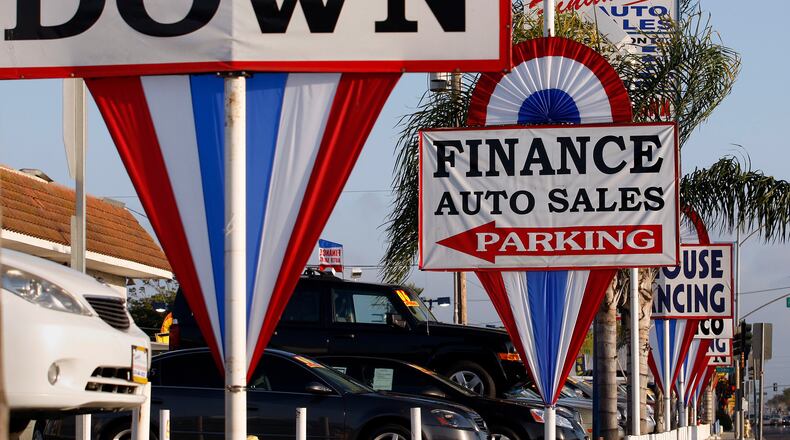It’s not over quite yet, but after years of very public spats at the state Capitol, lawmakers and lobbyists for auto dealers say they have come to an agreement on legislation that would reduce taxes for Georgians who buy new cars.
At the same time, the deal will mean higher taxes for some used-car buyers.
The House this week easily passed House Bill 365, sponsored by state Rep. Shaw Blackmon, R-Bonaire, and it heads to the Senate for consideration.
House bills caught up in the new-car dealers versus used-car dealers fight have traditionally died there. But lobbyists for both sides have signed off on the bill, which traditionally means a lot to state lawmakers when they are considering legislation. Especially when the lobbyists are Statehouse veterans whose clients have put a lot of money into bankrolling campaigns.
Blackmon talked for less than two minutes when presenting the bill to the chamber, largely because his colleagues have heard about the subject, and from lobbyists on both sides of it, for several years.
“I think this process has been really inclusive in regards to all the industry players, and it is really an exercise in unity,” Blackmon said.
Under HB 365, the title taxes you pay when you buy a car would drop from 7 percent to 6.6 percent starting July 1, and that would last until 2023. That may not sound like much, but state officials estimate that it will save car buyers about $33 million to $34 million a year.
The sticking point has been whether a used car would be taxed on the book, or estimated, value of the vehicle or its sales price, which is generally higher. Currently, new cars are taxed on the sales price. Under legislation passed in 2012, used cars are taxed on the book value.
Blackmon’s bill would tax used cars sold by dealers on the sales price unless they are sold through used-car dealers who finance the sale. Those businesses, which tend to have more lower-income buyers, would continue charging the tax based on the book value of the car. Person-to-person sales — such as your neighbor selling you his car — would also be taxed at the lower book value, as is currently the case.
Now, if somebody buys a used car for $10,000 and owes the 7 percent tax, but the state values the vehicle at $8,000, that customer pays the taxes on the $8,000, not on what he or she paid for it. The difference in taxes would be $140 in that scenario.
Blackmon’s latest bill — if it wins final approval — would mean many used-car dealers will tax customers at the higher sales price of $10,000.
Changing how some used cars are taxed would increase the tab for those buyers by about $30 million to $34 million a year, according to state estimates.
New-car dealers — who also sell about 40 percent of the used cars in the state — have lobbied for several years to see the state use the same basis — the sales price — for taxing both new and used cars. The House has supported the change in the past but the Senate hasn’t.
Used-car dealers credited Casey Cagle, who as lieutenant governor was the Senate president for more than a decade, for killing the new-car dealers’ proposals. Cagle received big campaign contributions from both sides in the fight, but he lost the 2018 Republican runoff for governor and left office in January.
One of the weapons both sides have used has been the checkbook.
In the two weeks in January leading up the 2019 session, the new-car dealers political fund contributed $59,000 to more than 100 elected officials in the Statehouse, including $6,600 to Gov. Brian Kemp and $6,600 to Lt. Gov. Geoff Duncan, who replaced Cagle as the Senate president.
That was after spending $120,000 last year on candidates, including the same donations to Kemp and Duncan after they won the Republican nominations. Around the same time last year, the used-car dealers’ political action committee gave $3,000 to Kemp and $5,000 to Duncan. Dozens of auto dealers contributed to the campaigns of statewide candidates and lawmakers as well.
Stay on top of what’s happening in Georgia government and politics at ajc.com/news/georgia-government/.
About the Author
Keep Reading
The Latest
Featured




